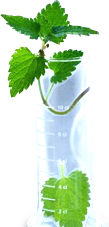



Author(s): Megha Murali, Arun S. Nair, Neethu S. Kumar*
Wheat grass refers to the young grass of the common wheat plant, Triticum aestivum L. that is freshly juiced or dried into powder for animal and human consumption. Green Blood Therapy is the use of wheat grass juice (WGJ) to cure multiple diseases. The name “green blood” of wheat grass is attributable to its high chlorophyll content which accounts for about 70% to its total chemical constituents and also to its close structural similarity to Haemoglobin. Wheat grass juice contains almost all the nutrients the body requires and is considered to be a complete food. The present study intends to provide an overview of the antimicrobial activities of the crude fresh leaf extracts of T. aestivum with special emphasis on their pharmacological actions. Wheat grass chloroform extract with DMSO was assayed in vitro by agar cup method against two clinical gram negative isolates of bacteria such as E. coli and Klebsiella pneumonia and two clinical fungal isolates such as Candida albicans and Aspergillus niger. The chloroform extracts of wheat grass was found to have high antifungal activity than antibacterial activity. The extract had shown more inhibition against E. coli and A. niger. On the basis of the results obtained, the present study concludes that wheat grasses are rich in phytochemical constituents exhibiting antimicrobial properties. Thus the present study supports to a certain degree, the usage of traditional medicinal plants in human and animal disease therapy and reinforce the ethno botanical approach to screening plants as potential sources of bioactive substance is successful.